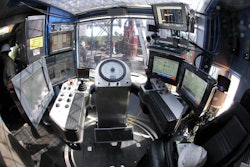
Three Rules For
Managing Your
Manufacturing
Data
W
H
IT
EP
A
PE
R
www.iqms.com 1.866.367.3772 [email protected]
IQMS, the IQMS logo and EnterpriseIQ are registered trademarks of IQMS. All other company names are trademarks of their respective owners. The information herein is subject to change without notice. © 2015 IQMS. All rights reserved.
Three Rules For Managing Your Manufacturing Data
Thanks to the Internet of Things (IoT), every work center, device and piece of equipment
in your manufacturing facility has the potential to collect information. Devices such as
your PLCs, machine controllers, thermostats, chillers, extruders, vision systems and paint
lines now have the ability to extract detailed process and production information while
in use.
This recent ability to leverage volumes of data is creating waves of change within the
manufacturing industry. With process monitoring and serial traceability, manufacturers
can now tie together product information end to end, from the initial manufacturing
stages through to final shipping. This improved data collection and analysis is increasing
accountability, traceability and changing the decision-making process, as manufacturers
are able to capture a realistic picture of what is occurring on the shop floor in real time.
A big data initiative in your manufacturing facility can greatly assist your organization.
But the increase of information does not come without challenges. For example, once
you have the data, what do you do with it? Collecting data for data’s sake, especially
outdated data, can cause more harm than good without a plan for using the data as
failure to correctly analyze and apply the data can produce a negative outcome.
When embarking on a big data initiative, here are three rules to follow to make the most
of your newly acquired information:
Rule No. 1: Just because you can collect everything doesn’t mean that you should.
Production and process monitoring is about more than just collecting data for data’s
sake. With rule number one in mind, how do you decide which data is important and
which is not? The most important answer is: Any information that you collect should
be actionable.
Other considerations when collecting data include: Does this increased knowledge
inform you about areas you have control over and can change? Is this specific
information required by a customer to do business? Does it improve quality control
or increase customer service? Does it satisfy a compliance regulation? Will this data
lead me to potential liability in the future? Below are a few real world examples of
how the right data collection can improve your business.
Production Improvement:
You have a work center, dutifully manufacturing parts 24/7, with a quality issue. At
around 2 AM every night, about 10 minutes worth of parts coming off the machine
are rejected. Why is this failure consistently occurring? By tracking environmental
data at the work center, you are able to show that an ambient temperature drop
(attributed to an employee propping open a back door for his smoke break) directly
affected the cure time on the product, resulting in the defects.
www.iqms.com 1.866.367.3772 [email protected]
IQMS, the IQMS logo and EnterpriseIQ are registered trademarks of IQMS. All other company names are trademarks of their respective owners. The information herein is subject to change without notice. © 2015 IQMS. All rights reserved.
Process Control:
You have a series of paint lines that color products as they pass underneath. By
measuring the quantity of paint leaving each nozzle on the line, you are able to
automatically determine whether enough paint is being applied to your products.
If the paint is distributed unevenly, it is easy to quickly identify which nozzle is the
culprit and adjust accordingly to maintain the quality of the product.
Quality Control:
Your company extrudes wire. Through an optical measuring device, you record
the top and side dimensions of the wire to measure the width and height of the
extrusion. With that data, you automatically calculate the roundness of the wire
and determine if the ovality meets your customer’s specification. Any out-of-spec
events are quickly realized and questionable material contained before it goes to
the customer.
Customer Service:
You have a customer questioning the production details of a specific order. You can
either manually respond to their phone or email query or you can give them the
ability to log into a personalized web portal to get detailed data about each lot or
batch they have ordered. This data has been captured and analyzed directly from
the machine controllers or PLCs with no human interaction so the customer can
inquire at their leisure.
Rule No. 2: Don’t settle for anything less than real-time collection.
If you want your data to be actionable, it needs to be displayed in real time. Batch
uploads, end of shift production reports or even two hour interval reporting is not
enough. When you pull information from your shop floor and back office, your
reports should be run against live data. Too many manufacturers miss out on critical
decision-making elements because of a lack of timely production details.
When something begins to go wrong on your shop floor and no one is made
aware for several hours, what is the cost? Actual real-time information can prevent
inaccurate scheduling, products trending out of specification, late shipments,
incorrect inventory and unplanned downtime. Take this example:
One of your work centers is processing a long running, automated job with no
operator. Because you only receive data every couple of hours, it is halfway through
a shift before you see any production information. You review the data and a quarter
of the products have been rejected for not meeting specification!
If only you could have accessed that data in real time. How many tens of thousands
of dollars were lost in corrective actions because your data was old? Add in the
expense of wasted material, rework, lost hours and the cost of your next job starting
late and the lack of real-time, actionable data comes at a high price.
www.iqms.com 1.866.367.3772 [email protected]
IQMS, the IQMS logo and EnterpriseIQ are registered trademarks of IQMS. All other company names are trademarks of their respective owners. The information herein is subject to change without notice. © 2015 IQMS. All rights reserved.
Business activity monitoring is another benefit of real-time information. A
customizable, query-based advisory system can automatically alert you (through
text or email) of critical events and issues based on the capture and evaluation of
your manufacturing data. This ability to interpret data in real time and turn it into
actions and advisories allows you to become proactive about time sensitive issues.
At some manufacturing facilities, there is a one to one relationship between an
operator and a work center. That operator is responsible for managing the current
job. But imagine if you could have one cell manager overseeing six different work
stations, rather than six separate operators. With real-time information and business
activity alerts, that scenario can be a reality as your manager will immediately be
alerted to any issues in his cell.
Finally, real-time information doesn’t lie. No matter how hard you try, you can’t hide
from real-time data and the accountability that accompanies it. Ignoring rule number
two can do more harm than good, so don’t settle for old data.
Rule No. 3: Analyze, analyze, analyze.
The final data collection rule may seem obvious, but properly analyzing and correlating
your data is the most important best practice of the three. Unfortunately, managing,
analyzing and interpreting data in a meaningful way is easier said than done without
the right tools. Fortunately, enterprise resource planning (ERP) software solutions
are designed to handle a broad range of information.
In the past, translating data from your shop floor to your ERP solution has brought
its own set of challenges. Interface issues, batch uploads and data duplication are
just a few. But with a comprehensive ERP and MES solution, managing your data
is straightforward because the entire system is built in one central database. From
your PLCs on the shop floor that talk with your process monitoring system that relay
information to your SPC module which ties the data to a specific lot, batch or serial
number, a comprehensive ERP/MES solution is the way to go.
What are some of the most useful tools in your ERP software when it comes to
managing and analyzing data?
• Business Intelligence Dashboards: An interactive way to organize, navigate, link
and display a variety of different charts and Key Performance Indicators (KPIs).
• Real-Time Process Monitoring: Gather machine performance and process data
at the PLC level and display charts and graphs with alerts in true real time.
• Statistical Process Control (SPC): Track the quality of your parts with variable
and attribute data displayed in a variety of charts and graphs.
• Business Activity Monitoring: Automatically be alerted (through text or email)
of critical events and issues based on the capture and evaluation of your
manufacturing data.
www.iqms.com 1.866.367.3772 [email protected]
IQMS, the IQMS logo and EnterpriseIQ are registered trademarks of IQMS. All other company names are trademarks of their respective owners. The information herein is subject to change without notice. © 2015 IQMS. All rights reserved.
• Lot, Batch and Serial Traceability: Data gathered is automatically tied to lot,
batch and serial numbers to provide end to end traceability for every step in the
production of a part.
The future of manufacturing lies in the hands of the businesses that can best capture and
manage their shop floor data. With these three rules in mind, plus a comprehensive ERP
and MES solution, you are on your way to implementing a successful big data initiative
in your manufacturing facility.
About IQMS
IQMS uniquely combines ERP and manufacturing execution system (MES) functionality
to give manufacturers a comprehensive end-to-end suite for running the business,
backed by the real-time performance and scalability companies demand. Developed
specifically for mid-market repetitive, discrete and batch process manufacturers, IQMS
provides robust capabilities for addressing strict customer and regulatory certification
and compliance. IQMS achieves this by delivering traditional ERP functionality for
accounting, sales orders, material requirements, inventory and purchasing, plus extended
native features for CRM, human resources, production scheduling, shop floor control,
warehouse and quality modules. With offices across North America, Europe and Asia,
IQMS serves manufacturers around the world.
For more information, please visit www.iqms.com.






















